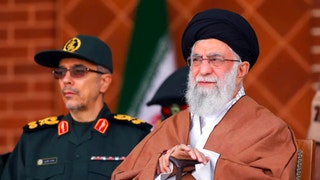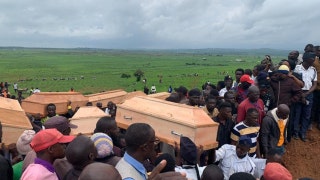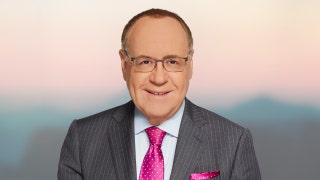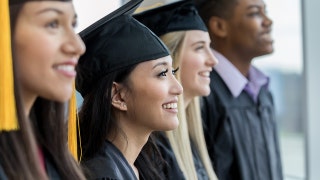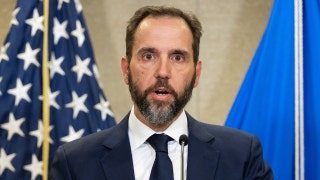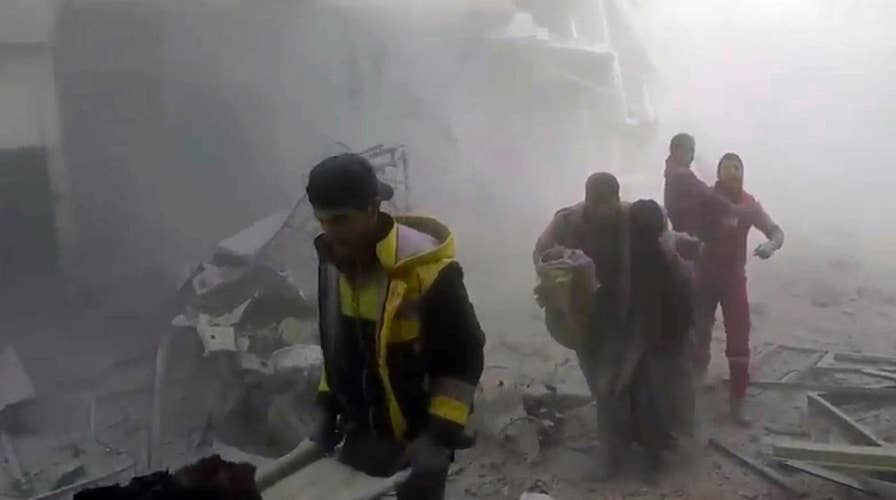New concerns about chemical weapons in Syria
Brian McKeon: Neither the Syrian regime nor Russia care about civilian casualties.
We doctors dedicate our lives to healing and saving the lives of others, but in war-ravaged Syria death is everywhere and anguished doctors are helpless to stem the slaughter, which has claimed an estimated 465,000 lives since fighting began in 2011.
I can only imagine the horrific conditions the Syrian people and the medical professionals working to save as many lives as possible must face. The American health-care system is far from perfect and faces many challenges, but nothing like the hell on Earth that is Syria today.
United Nations Undersecretary for Humanitarian Affairs Mark Lowcock appeared before the Security Council Wednesday and announced that there was still no ceasefire in Syria, despite a Security Council demand made Saturday for a 30-day halt to fighting covering the whole country.
The BBC and other news organizations report that nearly 400,000 people are trapped in Eastern Ghouta, near the Syrian capital of Damascus. The area has been under attack by government forces since 2013 and medics report that more than 500 people have been killed since bombing intensified just over a week ago.
As a physician, I am deeply affected by the humanitarian crisis in Syria – just looking at pictures on television makes me feel like I am in a nightmare. But the nightmare is all too real.
As a physician, I am deeply affected by the humanitarian crisis in Syria – just looking at pictures on television makes me feel like I am in a nightmare. But the nightmare is all too real.

(Syrian American Medical Society)
The Syrian American Medical Society (SAMS) is a nonprofit medical relief organizations that provides medical care in Syria for anyone in need. It has done great work with local doctors the group supports. Unfortunately, the conditions are quite poor and the threat from constant attacks – which likely include the use of chemical weapons – is great.
Bassam S. Rifai, political adviser for the Syrian American Council, wrote to me in an email that the hospitals in Ghouta have sustained major damage, and “since aid hasn't been delivered the capabilities of the facilities remaining is minimal, the staff have been forced to use expired medications and operate in unsafe conditions.”
In just the last few days, Rifai wrote, 25 hospitals have been attacked. Tragically, “while operating, one of our doctor’s hospital was bombed but he was able to continue his surgery, only to later on find out that his two children were killed by a bomb in their home.”
Rifai pointed to the extensive network in Eastern Ghouta maintained by SAMS. The nonprofit is supporting 280 health-care providers in 13 medical facilities in Syria. Rifai told me that “all of these facilities are lacking the basic necessities to operate and are under constant attack by the aerial assaults of the Syrian-Russian alliance … the medical staff has not been able to move in or out.”
(Syrian American Medical Society)
Rifai said that according to SAMS, the hospitals have been receiving cases consistent with exposure to poisonous chlorine gas, “having symptoms including dyspnea, intensive irritation of the mucous membranes, irritation of the eyes, and dizziness; these cases are consistent with exposure to toxic chlorine gas.”
He wrote that SAMS doctors report patients are treated with bronchodilators and oxygen and that several have improved while others have died.
Rifai provided me with the reactions of doctors who are treating victims in Eastern Ghouta:
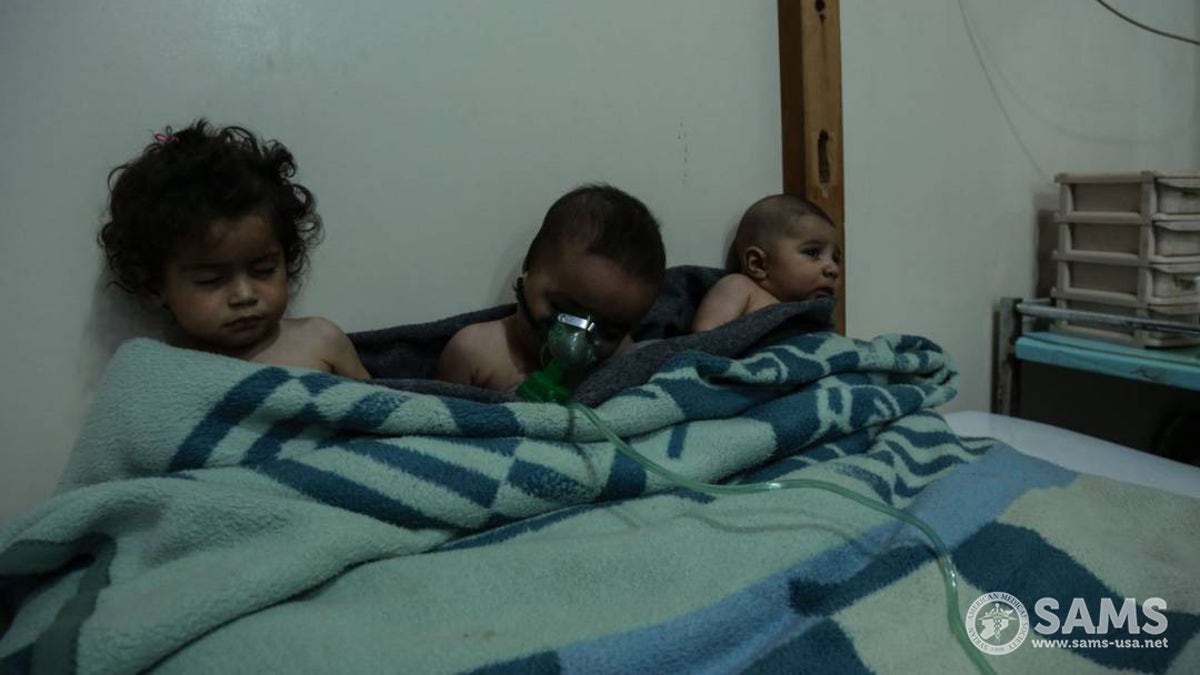
(Syrian American Medical Society)
Dr. Hamza, a SAMS doctor: "In the last four hours we have seen intense shelling in Ghouta. The intensity is similar to pre ceasefire levels. This is what I see, hear and witness. At this moment helicopters dropped barrel bombs. I hear its sound."
Dr. Ahmad Tarakji, SAMS president: "Like in Aleppo more than a year ago, poorly designed ‘humanitarian’ corridors in Ghouta are unlikely to be trusted. A safe, stable, and true humanitarian corridor needs to be done under the U.N. mandate. Medical aid is badly needed and there are now over 2,000 critical patients that need immediate care outside of Ghouta in hospitals that have the proper resources to treat these people"
Dr. Omar Alsaleh: "Thank God for his blessings ... I do not know if I am supposed to be content or sad.... Should I be sad that my wife had birth in utter darkness and under Assad and Russian nonstop shells and rockets and that my daughter has not seen the light yet.... Or content that God blessed us with our new born daughter after several operations? We called her Douma. May God keep her safe and have a great future.... Thankful for having our beautiful daughter under this unfathomable misery."
Dr. Mohammed Qatoub: "One fatality (a little boy), and 16 other civilians have been contaminated because of a chlorine gas attack in Sheifounieh town in Eastern Ghouta, less than 24 hours after the Security Council resolution has been passed. This is the 196th gas attack since 2012, the 5th just in Eastern Ghouta in 2018. When will they stop hunting?"
Finally, here’s a haunting poem from Dr. Housam Adnan:
From the womb of the dead
For more than twenty years, the scalpel was my companion
Dancing between my fingers, while I do my work very quietly
At the end of each day I whisper to it:
You did very well, and we saved many together.
But everything changed now
The scalpel wasn’t what it used to be, lately
My fingers can’t handle it anymore
As if a part of my soul was taken into its teeth
And it can’t bear the wounds it witnesses anymore.
Children without parts
Without eyes
Without faces
Women and families covered by sheets full of soil from the homeland
With more of her children’s blood
The smell of gunpowder and its abhorred black color
Hangs over those hungry, withered faces.
The screams of children
The wailing of women
The oppression of men
The impotence of doctors, reached my dead scalpel
Creating a spirit of the misery inside it
That it stopped working after what it witnessed
But those cries did not.
As a physician in training, my galvanizing experiences ranged from serving in a community clinic in rural New Mexico, to visiting patients in old stone houses in northern Scotland, to working through the night at an inner city hospital in New York City at the height of the AIDS epidemic.
I always had at my disposal the tools and treatments I needed to provide care essential to my patients’ survival. Sometimes I worried about my own safety after accidentally sticking myself with a needle, but I continued on, knowing that my patients would have been desperate without the treatments I provided them.
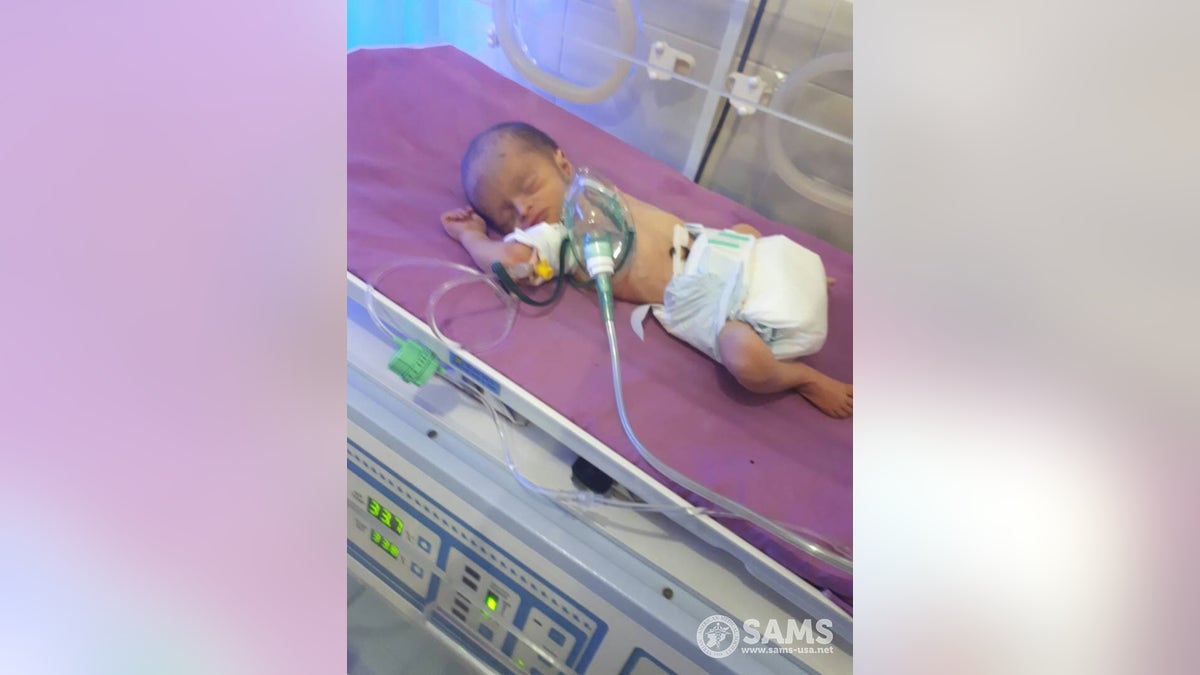
(Syrian American Medical Society)
At no time did I ever really feel medically impotent. Yes, at Bellevue Hospital in New York we sometimes ran out of a certain kind of syringe or intravenous solution or even scalpel blade, but at no time did that temporary shortage ever cost one of my patients his or her life. Never. Not even close.
So it is with great sadness that I try to imagine the frustration and impotence that a doctor in Eastern Ghouta feels now, lacking essential supplies or access to the tools needed to provide care, even while risking his or her life to help a desperate patient bleeding, or gasping for air and turning blue. The image of a dead scalpel in Dr. Adnan’s poem says it all – the futility of a doctor who is stripped of the ability to heal.













